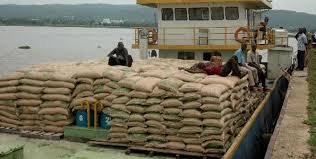

M a r k e t N e w s
Sugar will test EAC Common Market bid
Posted on : Monday, 24th August 2015

Ever since Kenyan President Uhuru Kenyatta promised his Ugandan counterpart, President Yoweri Museveni that restrictions on Ugandan sugar imports into Kenya would be eased, a sense of misplaced calamity has befallen the Kenya sugar belt region.
A leading opposition leader said he was not against Ugandan sugar being imported to Kenya, but the Kenya sugar industry must be protected.
Although understandable, this type of thinking does not bode well for the East African Common Market. Or for that matter any serious attempts to get rid of Non-tariff Barriers (NTBs). Any kind of protection is the best friend of vested interests and the enemy of efficiency, because it keeps consumer prices unnecessarily high.
Sugar was always going to be the commodity that would highlight the vulnerabilities of the regional market. It is a sensitive issue. Not only does the crop provide employment for thousands of farmers, it is also a basic item for most households. That explains why anything to do with sugar becomes contentious shoving aside all economic sense.
On the other hand, were supposed to be a common market. If one neighbour has a shortfall, there is no reason for one who has a surplus not to help out. This balances oout trade. However many Kenyan critics say unscrupulous characters will use Uganda to re-package imported cheap Brazilian then sell it to Kenya with a nice mark up. The solution to this is closer monitoring and coordination between the relevant revenue ans standards authorities.
The Protocol on setting up the East African Community (EAC) Common Market entered into force on July 1, 2010, following ratification by all the five Partner States: Burundi, Kenya, Rwanda, Tanzania and Uganda.
That means all five bought into the idea. The Common Market is in line with the provisions of the EAC Treaty. It provides for ‘Four Freedoms’. The free movement of goods; labour; services; and capital. This will significantly boost trade and investments and make the region more productive and prosperous.
The Common Market represents the second stage of the regional integration process following the Customs Union, which became fully-fledged in January 2010. According to agree roadmap, the Common Market Protocol is a significant step towards the achievement of the next milestones in the integration process namely the Monetary Union and the EAC Political Federation.
Several reports and surveys, including one by the Kenya Sugar Research Foundation, highlight the fact that Kenya’s sugar industry is inefficient. In contrast the mills in Uganda were either re-tooled or are newly built.
Meanwhile until February next year, COMESA has allowed Kenya to impose a safeguard limiting imports of duty-free sugar. Kenya stated, when seeking the one year extension, that it needed more time to restructure and increase the competitiveness of its sugar industry. Kenyatta has recently reiterated this resolve.
It is a bit unfair that some Kenyans have forgotten it was the long lean years of Uganda’s economy that allowed for the rapid expansion of Kenyan manufacturing. Even today, Uganda remains Kenya’s leading buyer of goods and services. According to Kenyatta, Uganda annually imports $700 million worth of products from Kenya while Uganda exports are a mere $150 million. Let’s learn to compromise.
Source : busiweek.com





























































